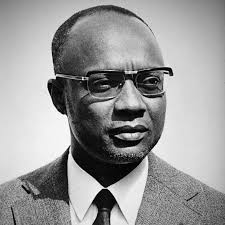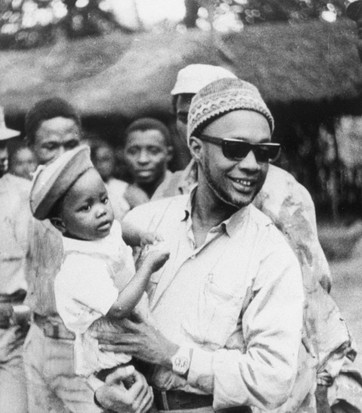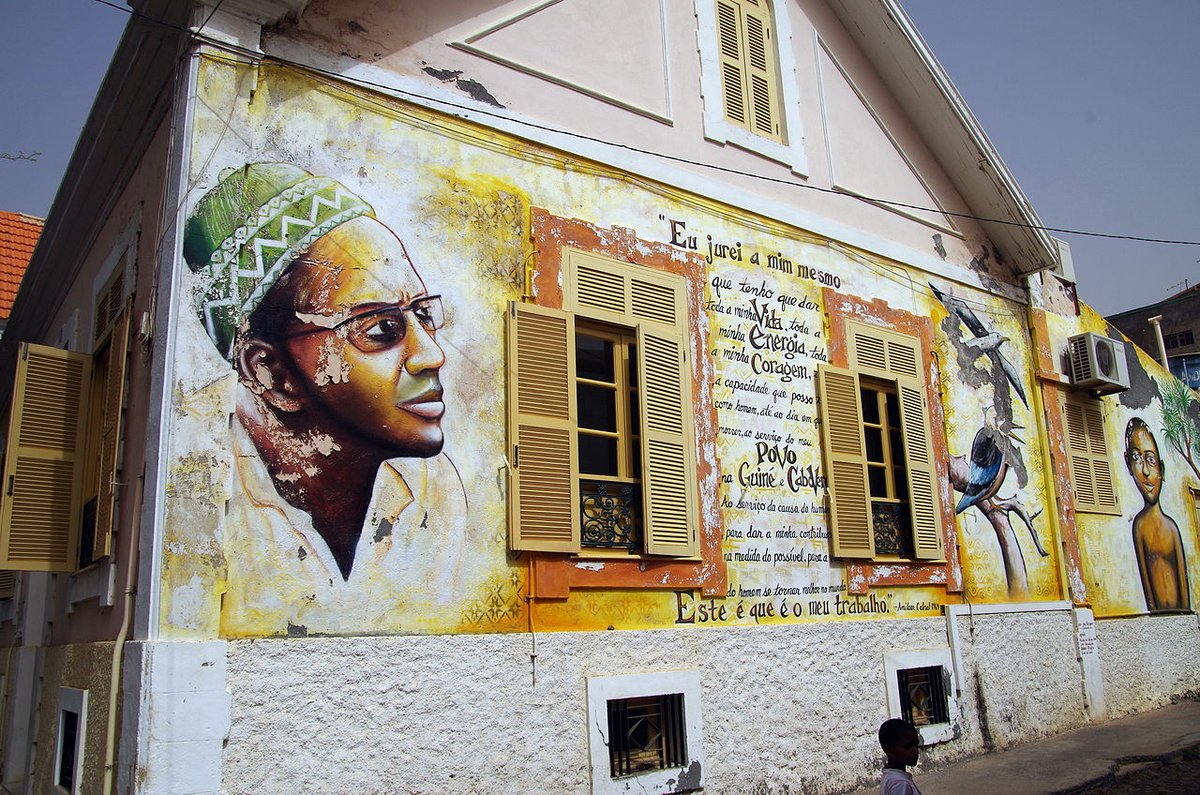A thread on Amílcar Lopes Cabral, a nationalist leader, and founder and secretary-general of the African Party for the Independence of Guinea and Cape Verde, who helped lead Guinea-Bissau to independence. A true 'organic intellectual' in a Gramscian sense.
While Cabral led the nationalist movement of Guinea-Bissau and Cape Verde Islands, His main contribution was his study of colonized identity and leadership in the context of national liberation, class consciousness, and Marxian theory.
Although he did not start out as a philosopher, Amílcar contributed to the Africana tradition of critical theory in several poignant, and provocative ways, and his ideas “represent the zenith” of the 20th Africana revolutionary theory and praxis (Serequeberhan, 1991).
Cabral’s concept of culture was inextricable from his understanding of history. History, for Cabral, is the narrative of the “imbalances and conflicts (economic, political and social)” that historically and contemporarily shape and characterize the development of a society.
He emphasized the elasticity and durability of culture even in the face of colonialism. “One of the most serious mistakes, if not the most serious mistake, made by the colonial powers in Africa, may have been to ignore or underestimate the cultural strength of African peoples.
He underscored, "Portuguese colonial domination” in Cape Verde and Guinea-Bissau, “was not content with denying absolutely the existence of cultural values of the Africans and their conditions as social beings, but has persisted in forbidding them any kind of political activity”.
For Cabral, the capacity for “cultural resistance” by African people “was not destroyed”. He argued that the weaponization of culture was imperative because colonial domination entailed cultural oppression. National liberation, he concluded, “is necessarily an act of culture.”
He articulated a process of “re-Africanization,” by which Africa’s elite, long beholden to the colonizers for their education and employment, would re-embrace indigenous African culture and reintegrate themselves into mass popular culture.
Only by doing so could Africa’s indigenous leaders re-create an independent identity—socially, culturally, and psychologically—and rally a nationalist spirit in the rural peasantry, whose lives had largely been untouched by imperialism.
Colonized people could then regain control over their lives, “reenter history,” and retap their “national productive forces.” This movement he called “Returning to the Source.”
Cabral’s views remain relevant to contemporary discussions of African underdevelopment and the limits of postcolonial governments across the continent. His ideas were aimed at ending colonial domination, but he believed that this objective would only achieve “flag independence.”
He made a distinction between the struggle for independence that ends in neocolonial dependency and the national liberation struggle that entails mental decolonization and profound socioeconomic transformations that favorably impact the lives of people.
“The colonists usually say that it was they who brought us into history: today we show that this is not so. They made us leave history, our history, to follow them, right at the back, to follow the progress of their history.”
~ Return to the Source: Selected Speeches of Cabral
~ Return to the Source: Selected Speeches of Cabral
He called for Africana theorists/writers to decidedly break with abstract academic, disciplinary decadent, epistemically insular, and often almost exclusively European and European American–derived discourses. Instead, they must become alert to the concrete reality of the moment.
Even Karl Marx was not spared. He remarked and reminded that “Marx . . . was not a member of a tribal [read: traditional African or racially colonized African] society” and that, in point of fact, “Marxism is not a religion, and Marx did not write about Africa.”
For him, any theory must be open to revision and reconstruction as new historical, cultural, social, and political situations and circumstances present themselves to local and global, national, and international societies and civilizations.

 Read on Twitter
Read on Twitter




